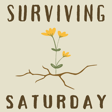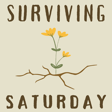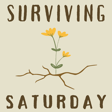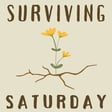
Story Work in Your Marriage: The Hope, the Challenges, and the Power (Part 2)
A frequent theme of this lil' ol' podcast is that having a more honest, compassionate, and kind regard for your own story of formation in your family of origin can be a huge source of greater intimacy and kindness in your marriage.
But how exactly does that work?
What does it look like in practice for both people in a marriage to explore their stories, together?
What are the ideal circumstances and commitments that a couple would want to have before going into such a process? And what might they hope to gain if the effort bears fruit? Is it just a bunch of self-absorbed "navel gazing" or blame-shifting to our parents for our present day problems? Or, might there be something powerful, delicate, and maybe even holy at work?
In this second episode of a three part series, Chris and Wendy share intimately about what doing story work has looked like through the last 20+ years of their marriage. And as you will see, it's been quite a journey.... They also describe what can happen when a couple either works with Wendy as their counselor to do story work for the benefit of their marriage, or decides to engage in a marriage story workshop or a one-on-one couples' intensive. No matter where you are in your marriage, there will be something of goodness, mystery, and wonder to be gained just for a half hour or so of your listening time. Enjoy!




